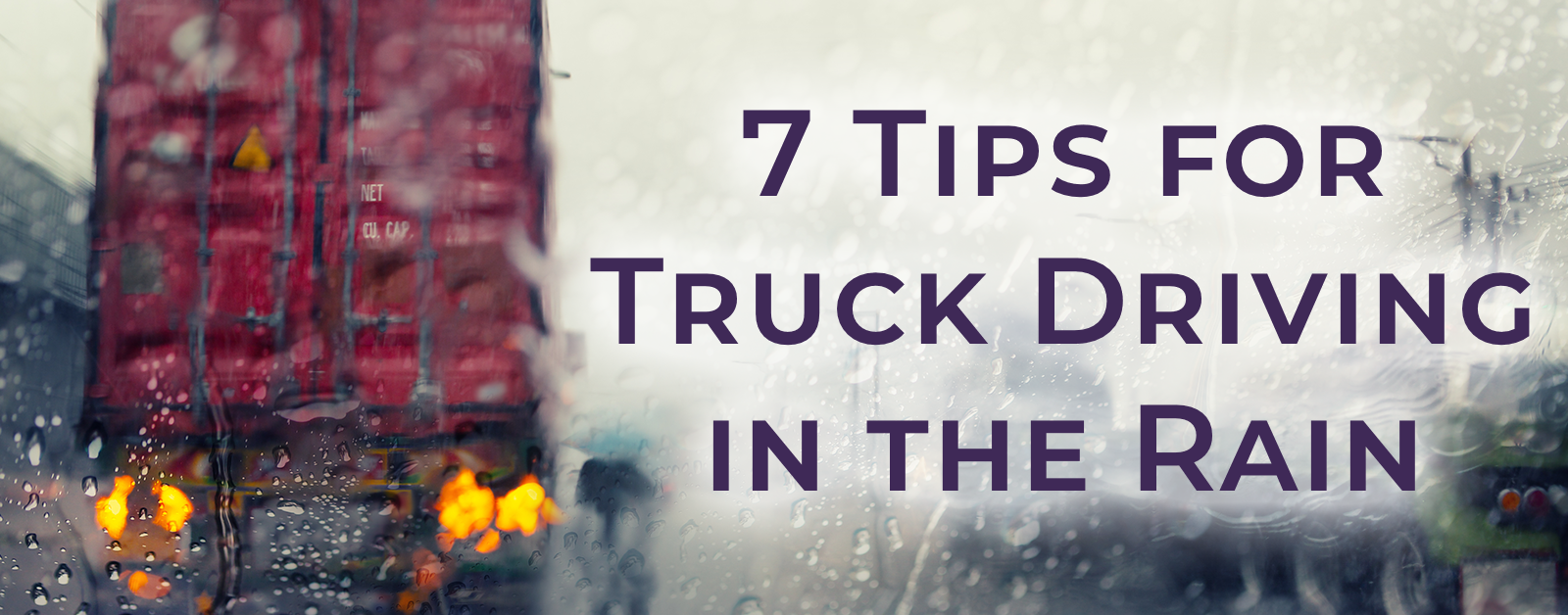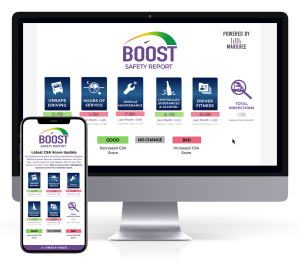7 Tips for Driving in the Rain With Your Truck
Weather is a significant factor in determining if your shipment will arrive on time or not. Did you know 23% of all truck delays are due to the weather? This costs trucking companies approximately $3.5 billion every year, and accidents will only add to that cost. You can’t control the weather, but you can control your driving. Learn how to drive safely during inclement weather with these 7 tips for driving in the rain with your truck.
1. Eliminate distractions before you turn on the truck.
Before you turn the key, put your phone on silent or set it to “do not disturb”. Set up your navigation system and place your phone out of reach, that way you’re not tempted to check text messages. Place your drinks and snacks within easy reach and get ready to give the road your full attention.
Keep the radio on with low volume.
The radio shouldn’t be so loud that you can’t hear what’s going on around you (such as emergency vehicles coming up behind you). Pay attention to weather updates and alerts on driving conditions, but don’t lose focus.
2. Take more time to accelerate or decelerate.
When you’re driving in the rain, you’ll need more time to accelerate and decelerate. To maintain control of the truck you may need to reduce speeds by at least 5 mph if you’re facing bad weather conditions or a curve in the road. You’ll also need to slow down if you’re driving in heavy traffic or pulling a light trailer.
3. Increase your following distance.
A good rule of thumb is to have about 7 seconds of following distance in good conditions, and more in rainy conditions. Trucks need 40% more time to stop than cars. On a good day, a fully loaded tractor-trailer takes approximately 370 feet to come to a complete stop when going 60 mph. The heavier the vehicle and the faster it moves increases the length needed to come to a complete stop.
4. Drive slower than the posted speed limit.
When you’re driving a passenger vehicle, going slightly over the speed limit is usually not a big deal. But when you’re driving an 18-wheeler — especially in wet conditions — a few miles over the speed limit could lead to an accident. To drive under the posted speed limit and ensure the safety of yourself and other drivers. For example, Schneider’s “Take 5” safety tips advise taking 5 mph off your speed for each of the following when you encounter them:
- Inclement Weather – 5 mph or more.
- Curve in the Road – 5 mph or more.
- Empty Trailer – 5 mph or more.
- Heavy Traffic – 5 mph or more.
5. Don’t use cruise control or the engine brake.
Driving on cruise control during wet conditions will keep you from sensing if the truck is hydroplaning. Using your engine brake could lead to loss of traction. Add this to your list of tips for driving in the rain!
6. Get off the road if the conditions get too severe.
In certain situations, no amount of experience will help you stay safe. So if you’re feeling unsafe on the road, pull into a parking lot and wait until conditions improve. Your safety is not worth the risk.
7. Never over-drive your ability or the ability of your vehicle.
If you are not comfortable with the situation, get off the roadway safely (not on the shoulder, but in a safe parking lot) and take a break until conditions improve. Let others know where you are and that you are safely parked.
With these tips for driving in the rain, you will feel more comfortable in a large truck during inclement weather. If you do happen to get into an accident, get assistance from Marquee’s Claims team. Also, feel free to check out the Preparing Against Claims Kit brought to you by our Claims Manager, Dee Stephens.






